
Nigeria’s Digital Leap: 90,000km Fibre Optic Network to Boost GDP, Transform Journalism- Sen. Salis

The Federal Government has announced plans to lay 90,000 kilometres of fibre optic broadband across the country, aiming to enhance digital technology penetration and increase Gross Domestic Product (GDP).
This initiative, according to Senator Shuaib Afolabi Salis, Chairman of the Senate Committee on Information and Communication Technology and Cyber Security, will not be limited to states and local governments but will also extend to each ward in the federation.
He stated that the fibre optic network will cover all wards in the country, ensuring widespread digital access, noting that studies have shown that a 10% increase in fibre penetration can lead to a minimum of 2% increase in GDP growth.
“The project is expected to drive another revolution in Nigeria’s digital communication space, building on the progress made since the liberalisation of the telecommunications sector in 1998/1999”.
Speaking on the role of AI in Journalism
Senator Salis also emphasised the importance of integrating technology into journalism training and practice.
He noted that while ensuring that AI is used as an enabler, not a replacer, to maintain professional differentiation in journalism.
The panel discussion at the event highlighted the merits and demerits of using AI in journalism.
Experts urged journalists to be professional in their use of AI, promoting national unity and cohesion, and encouraging youths to innovate and harness technology to revolutionise Nigeria’s oil and gas industry.
According to Sen Salis “The country is at the cusp of a revolution. In 1998/1999, when we liberalised the telecommunications sector, a number of organisations didn’t believe in the potential of Nigeria; they were asking questions: how many people would make phone calls in Nigeria? Particularly, we were transiting from an environment where we only had a government behemoth, NITEL. But what had happened? MTN, Airtel and several other organisations that took advantage of Nigeria, today, MTN, about a few weeks ago, we went to commission the biggest MTN Data Centre in Africa.
“Twenty-five years down the line, we are about to have yet another revolution in our digital communication space.
This government under President Bola Tinubu is going to deploy 90,000 kilometres of fibre optic broadband across the country, not just in some states, not just in some local governments; there is no ward that will not have fibre optic presence.
“Several studies have confirmed that any 10 per cent increase in your fibre penetration in the country would lead to a minimum of two per cent increase in your GDP growth. So, just imagine if you deploy more technology. And it is very easy to fathom. Just imagine we have fibre optic in all our wards.”
The lawmaker revealed that one of the challenges of professional journalists in today’s world is that AI has the potential to increase the incidence of quackery.
While advocating that technology must be embedded in the curriculum for mass communication and journalism training
“The challenge for professional journalists is that AI also has the potential of increasing the incidence of quackery in the profession. So, what do we need to do? Our curriculum for the mass communication and journalism training institute must embed technology into the curriculum. It cannot be an afterthought or annexure; just like any discipline whatsoever, now, it must have technology embedded in it”.












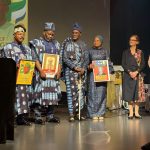



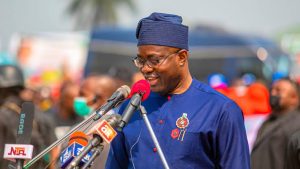

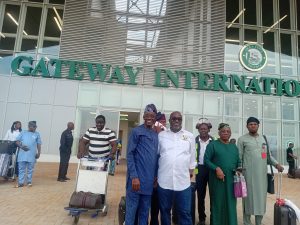
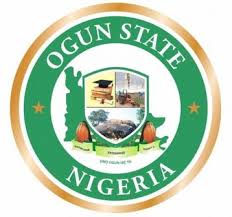

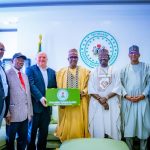






Average Rating